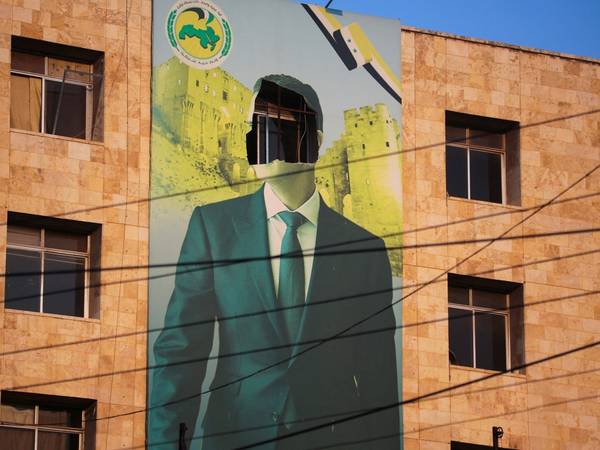Discussions to lift sanctions on Syria’s long-time president to lure him away from Tehran are underway between the US and UAE, according to Reuters.
Leaders from the two nations have been in discussions for several months, according to the report, long before last week’s offensive which saw rebel Islamist groups take control of Syria’s second city, Aleppo.
The talks aim to cut Syrian President Bashar al-Assad’s ties to Tehran, and help stem the flow of weapons to Iran’s ally Hezbollah in Lebanon through Syria.
This development comes ahead of the potential expiration of US sanctions on Syria, known as the 'Caesar' sanctions, on December 20, and amid Israel's ongoing conflict with Iran’s allies—Hamas in Gaza and, until last week’s ceasefire, Hezbollah in Lebanon.
The UAE, which branded the Muslim Brotherhood a terrorist organization after the Arab Spring in a bid to crack down on Islamic extremism sweeping the region, has been playing the diplomatic card with Syria for the last two years in a bid to bring the long-serving leader to the table.
In 2022, Assad visited UAE for the first time in 11 years, and before the Arab League reinstated his membership, as back door diplomacy began to take a more public role.
However, the talks could still stall if Syria decides to exploit potential Iranian support for a counter-offensive in the face of possibly the biggest threat to Assad during his rule.
Groups of Iran-backed militia have entered Syria from Iraq as Iran fears losing its grip on the country which is a critical smuggling route for weapons to Hezbollah in addition to acting as an outpost for the Islamic Revolutionary Guards Corps.
There has been no official comment on the developments, but the UAE’s official news agency said President Mohammed bin Zayed spoke to Assad on Sunday, expressing support for Syria, urging a peaceful resolution.
In 2011, the US placed heavy sanctions on Syria after Assad crushed protests against him during the Arab Spring. Those got tougher as time went on, including in the wake of the 2013 chemical weapons attack in which the Assad government launched rockets carrying the deadly nerve agent sarin into the Ghouta district of Damascus, killing more than 1,400 people.
The US placed Syria on its inaugural list of state sponsors of terrorism 45 years ago in the wake of the 1973 War when Washington was unable to woo President Hafez al-Assad away from Palestinian extremist groups and toward Arab-Israeli peace.
The Trump administration sanctioned 113 members of government in the six months after the Caesar sanctions were implemented in June 2020, all of which were subject to mandatory secondary or derivative sanctions against regime facilitators. The Biden administration has only designated a handful but with Trump’s return, a revisit of the sanctions could be likely.
In September, David Adesnik from the NGO Foundation of the Defense of Democracies, the FDD, said “the Biden White House opted for a policy of quietly encouraging Arab allies to normalize relations with Assad, which culminated in Syria’s readmission to the Arab League in 2023. Biden’s policy included token enforcement of the Caesar Act, which led to bipartisan criticism from Congress.”
The chairman of the Senate Foreign Relations Committee, Sen. Ben Cardin (D-MD), proposed a late amendment to the National Defense Authorization Act on September 11 that included a four-year extension of Caesar Act sanctions on Assad's government while expanding the criteria for designation under the act.
In an analysis, Adesnik said: “Though Cardin’s amendment signals bipartisan support on Capitol Hill for expanding sanctions against the Assad regime, it also includes problematic wording that could create unintentional but broad loopholes in the full range of US sanctions on Syria. Congress approved the Caesar Syria Civilian Protection Act of 2019 by overwhelming margins.”
